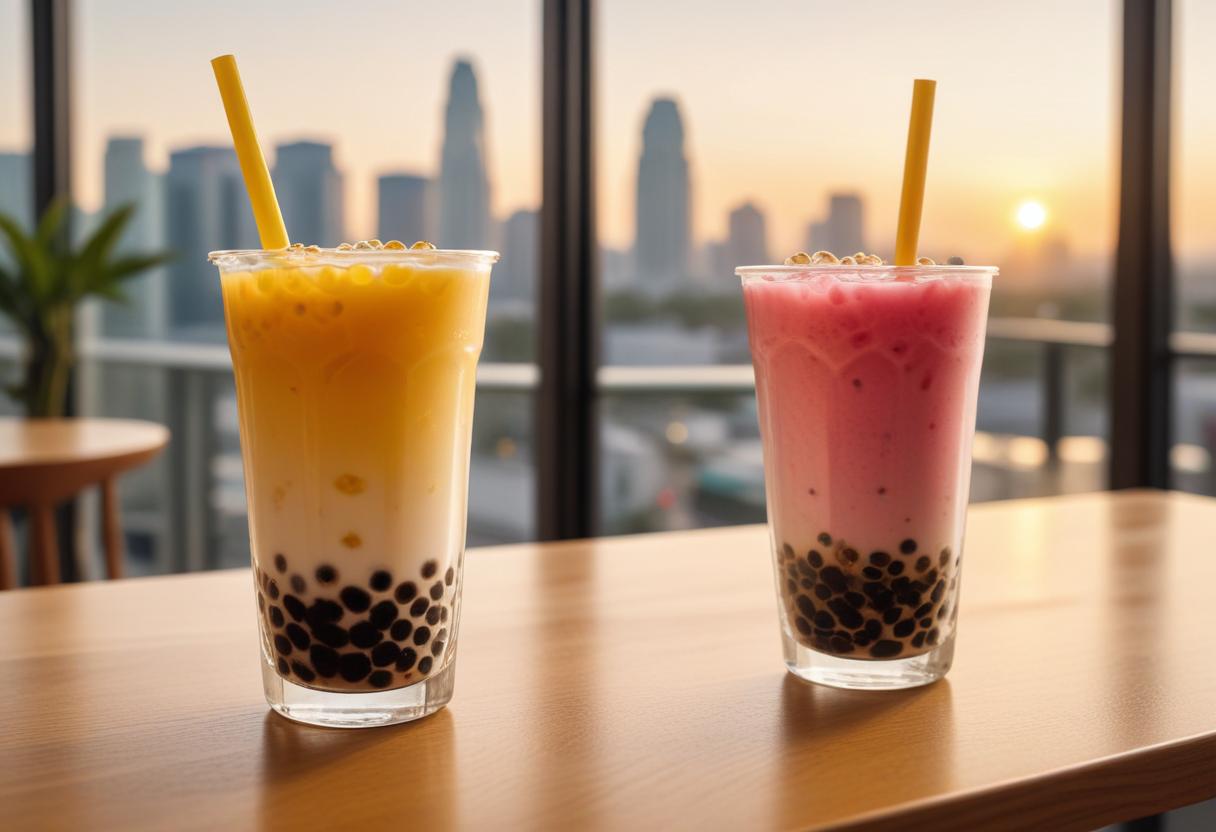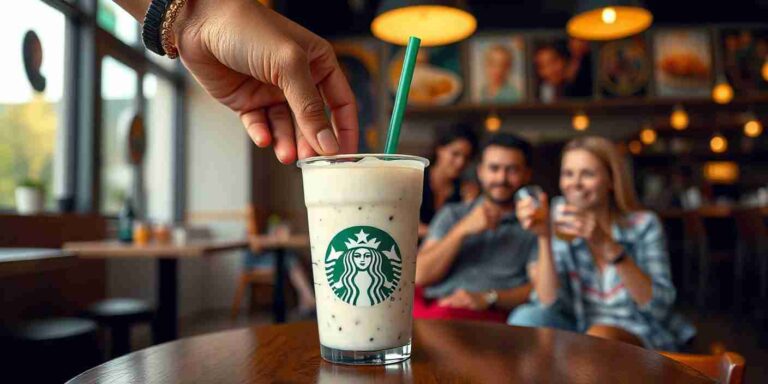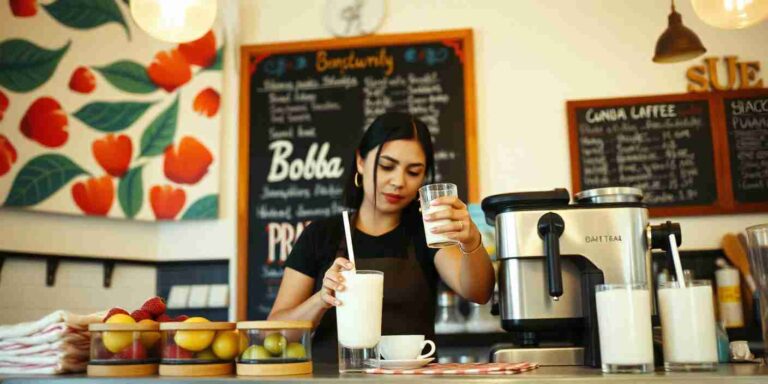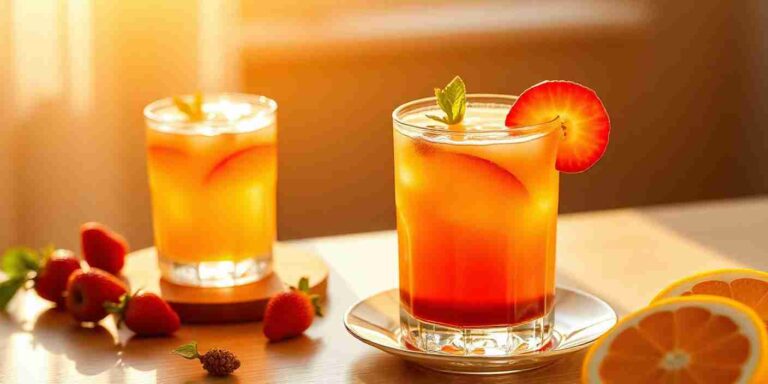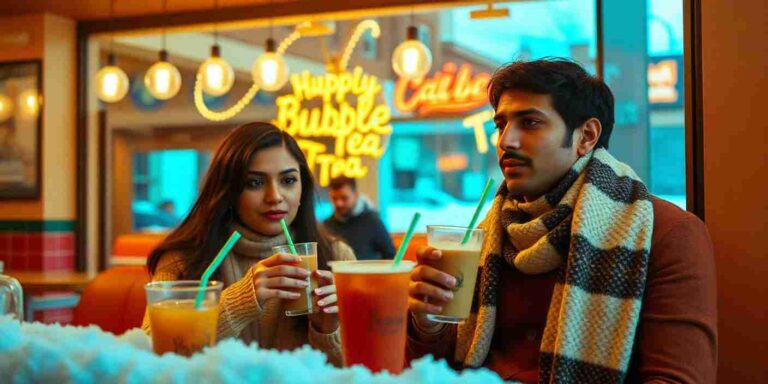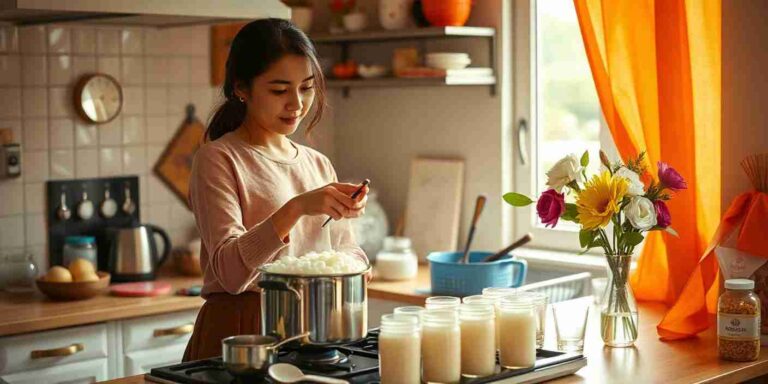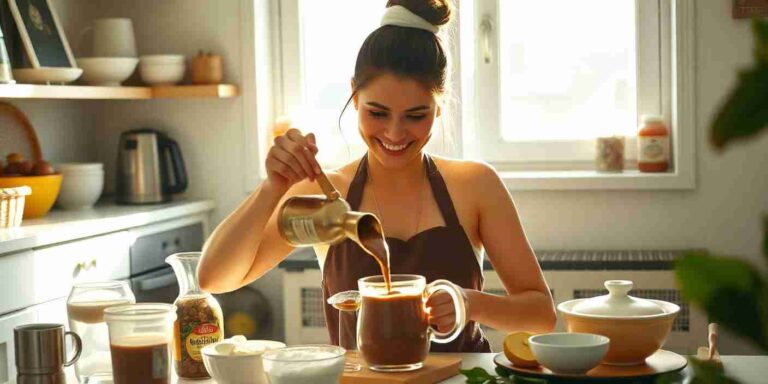Does Boba Tea Have Caffeine? Find Out Here!
Boba tea, also called bubble tea, is a favorite drink for many people. It’s fun to drink and comes in many flavors. But, if you’re wondering if bubble tea have caffeine, the answer is yes.
The caffeine content varies based on the type of tea used, with some fruit bubble teas being caffeine-free and others having lower caffeine levels compared to traditional tea.
The caffeine in boba tea is different from the caffeine in coffee. It works slower and doesn’t usually cause jitters or crashes.
This makes boba tea a good choice if you want a tasty drink without the negative effects of caffeine.
Key Takeaways
- Boba tea usually has caffeine, but it’s different from the caffeine in coffee.
- The caffeine in boba tea is slower acting and doesn’t usually cause jitters.
- Most boba teas have less caffeine than a cup of coffee.
- There are caffeine-free boba options like herbal teas and fruit-based drinks.
- Boba tea can be a good alternative to coffee if you want less caffeine.
Understanding Caffeine in Boba Tea
Boba tea, also known as bubble tea, usually contains caffeine. The amount of caffeine can vary based on the type of tea used.
The role of tea leaves, including jasmine, black, oolong, and green, is crucial in determining caffeine levels, with longer steeping times extracting more caffeine.
Most bubble tea has caffeine in it. However, the caffeine in tea is different from the caffeine in coffee. This difference can affect how your body reacts to it.
Average Caffeine Content in Boba Tea
Boba tea, also known as bubble tea, typically contains an average of 50 mg of caffeine per cup
Popular Caffeine-Free Boba Tea Options
If you’re looking to enjoy boba tea without the caffeine, there are some great options available. Fruit teas, which can be made by combining traditional tea leaves with fruit purees or syrups, are a distinct category that often includes caffeine-free options.
While most boba teas are made with tea and contain caffeine, you can still find delicious caffeine-free boba drinks. These options might not be as popular as the regular tea-based ones, but they are worth trying.
Decaf Tea-Based Boba
Decaf tea-based boba is a good choice if you want to reduce your caffeine intake. These drinks are made from tea that has had most of the caffeine removed. Although the selection might be limited, you can still enjoy the taste of tea without the jitters.
Non-Tea Boba Drinks
Non-tea boba drinks are another excellent option. These drinks are made without any tea or coffee base, so they are naturally caffeine-free.
For example, you can try boba made with fruit juices or milk. Fruit tea is another caffeine-free option, combining tea with fruit purees or syrups for a refreshing taste.
One popular choice is twrl milk tea – ube milk tea made with plant-based milk. It’s caffeine-free, low in sugar, and has a smooth taste.
Other options include herbal teas like chamomile, ginger, or peppermint, which are also free from caffeine.
Also Read: How Much Does Boba Tea Cost
Factors Influencing Caffeine Levels in Boba Tea
The amount of caffeine in your boba tea can vary based on several factors. The longer the steeping time, the more caffeine is extracted into the drink. Understanding these factors can help you manage your caffeine intake better.
High-Caffeine Boba Tea Varieties
When it comes to boba tea, some varieties pack a stronger caffeine punch than others. Oolong tea, for instance, offers moderate caffeine levels, making it a balanced choice. If you’re looking for a boost, these high-caffeine options might be just what you need.
Low-Caffeine Boba Tea Varieties
Boba tea lovers who want to cut down on caffeine have some great options. These low-caffeine varieties let you enjoy your favorite drink without the jitters. Here are some popular choices:
Herbal Tea Boba
Herbal teas like chamomile, ginger, or peppermint are perfect for those avoiding caffeine. These teas are made from dried leaves, flowers, or seeds, which means they are naturally caffeine-free. You can still enjoy the delicious flavors without worrying about caffeine.
Fruit-Based Boba
Fruit-based boba drinks are another excellent choice. Fruit teas, which can be made by combining traditional tea leaves with fruit purees or syrups, vary in caffeine content; some have a tea base that may contain caffeine, while others made with herbal ingredients are completely caffeine-free.
These drinks use fruit juices or purees instead of tea, making them a refreshing and caffeine-free option. They are perfect for a hot day when you want something cool and tasty without any caffeine.
Also Read: Is Boba Tea Good For Weight Loss
Coffee-Based Boba Tea
Caffeine Content in Coffee Boba
Coffee boba is a delightful twist on traditional boba tea. It combines the rich flavors of coffee with the chewy texture of tapioca pearls.
One cup of coffee boba contains an average of 95 mg of caffeine, similar to a regular cup of coffee.
This makes it a great option for those who need a stronger caffeine boost compared to regular boba tea.
Health Benefits of Coffee Boba
Coffee boba not only tastes amazing but also offers some health benefits. The caffeine in coffee can help improve focus and provide a much-needed energy boost.
Additionally, coffee is rich in antioxidants, which can help protect your cells from damage. If you’re looking for a way to enjoy your coffee with a fun twist, coffee boba is a great choice.
Plus, it’s customizable to suit your taste preferences, whether you like it roasted, sweet, or creamy.
Managing Your Caffeine Intake with Boba Tea
Choosing the Right Boba Tea
When it comes to managing your caffeine intake, picking the right boba tea is key. Some boba teas have more caffeine than others.
Bubble teas typically contain caffeine due to their tea or coffee bases, but there are also caffeine-free options available.
For example, black tea boba has more caffeine compared to herbal tea boba. If you want to cut down on caffeine, you might want to choose a caffeine-free option like taro boba.
Tips for Reducing Caffeine
Here are some tips to help you reduce your caffeine intake while still enjoying your favorite boba tea:
- Opt for decaf: Many boba shops offer decaf versions of popular teas.
- Choose herbal or fruit-based boba teas: These usually have little to no caffeine.
- Pay attention to brewing time and temperature: Following the steeping suggestions can help control caffeine levels.
- Limit your intake: Try not to drink boba tea too late in the day to avoid sleep issues.
By following these tips, you can enjoy boba tea without worrying about too much caffeine.
Health Implications of Caffeine in Boba Tea
Potential Benefits
Boba tea can offer some health benefits due to its caffeine content. Green tea leaves, known for their antioxidant properties, play a crucial role in this. Moderate caffeine consumption can help improve focus and provide an energy boost.
The base of boba tea is typically made with green or black tea, both of which contain antioxidants that are good for your health.
Possible Drawbacks
However, it’s important to be aware of the potential drawbacks. Consuming too much caffeine can lead to negative effects like jitteriness and trouble sleeping.
While boba tea generally has less caffeine than coffee, drinking it in large amounts can still cause these issues. Additionally, many boba teas contain a lot of sugar, which can have its own set of health concerns.
Why Boba Tea is a Great Alternative to Coffee
Boba tea, also known as bubble tea, has become a popular drink choice for many. While boba tea is not coffee, it uses similar serving techniques.
Originating in the 1980s to 1990s, the modern-day “boba” or “bubble” tea comes from Taiwanese culture. Here are some reasons why boba tea is a great alternative to coffee.
Conclusion
In summary, most boba teas do contain caffeine, but the amount can vary depending on the type of tea used.
Black tea-based bobas generally have more caffeine, while options like herbal teas or decaf versions have little to none. The caffeine in tea is also different from coffee, often causing fewer jitters and crashes.
So, whether you need a little pick-me-up or prefer to avoid caffeine altogether, there’s a boba tea out there for you. Just remember to watch out for the sugar content to avoid any unwanted crashes.
Frequently Asked Questions
Does boba tea have caffeine?
Yes, most boba teas have caffeine because they are usually made with tea or coffee. However, the caffeine in tea is different from the caffeine in coffee and doesn’t usually cause jitters.
How much caffeine is in boba tea?
On average, boba tea has about 50 mg of caffeine per cup. The amount can range from 20 to 80 mg depending on the type of tea used.
Are there caffeine-free boba tea options?
Yes, there are caffeine-free options like boba made with herbal teas or other non-tea bases. Decaf tea-based boba is also available.
What affects the caffeine content in boba tea?
The type of tea used and the brewing time and temperature can affect the caffeine content in boba tea.
Which boba teas have the most caffeine?
Black tea boba and green tea boba usually have the most caffeine. Black tea boba can have 40 to 80 mg of caffeine per cup.
Can I get coffee-based boba tea?
Yes, coffee-based boba tea is available and can have a higher caffeine content, averaging about 95 mg per cup.
What are some popular caffeine-free boba tea options?
Popular caffeine-free options include boba made with herbal teas like chamomile, ginger, or peppermint, as well as fruit-based boba drinks.
How can I manage my caffeine intake with boba tea?
You can manage your caffeine intake by choosing boba teas with lower caffeine content or opting for caffeine-free varieties. You can also adjust the brewing time and temperature to control the caffeine level.
